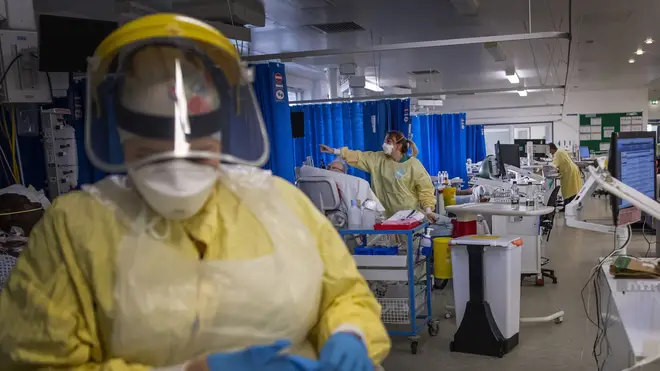
Nick Abbot 10pm - 1am
25 March 2021, 12:18 | Updated: 25 March 2021, 12:30

Middle aged women with at least two long term health conditions suffered more from long Covid, a study has found.
The UK-wide research also reported the majority of survivors of coronavirus infection who were taken to hospital had not fully recovered as late as five months after being discharged.
The study, run by Leicester and Loughborough universities with Leicester’s hospitals, found they continued to suffer impacts on their physical and mental health and their ability to work, while one in five of the participants had gained a new disability.
However, researchers identified white middle aged women as the worst-hit group who suffered from the long-term effects from Covid infection.
Chris Brightling, professor of respiratory medicine at the University of Leicester and chief investigator for the study, said: "While the profile of patients being admitted to hospital with Covid-19 is disproportionately male and from an ethnic minority background, our study finds that those who have the most severe prolonged symptoms tend to be white women aged approximately 40 to 60 who have at least two long term health conditions, such as asthma or diabetes."
Professor Louise Wain, GSK/British Lung Foundation Chair in Respiratory Research at the University of Leicester, said: "We... know that autoimmunity, where the body has an immune response to its own healthy cells and organs, is more common in middle-aged women.

Long Covid sufferer described debilitating effects of illness
"This may explain why post-Covid syndrome seems to be more prevalent in this group, but further investigation is needed to fully understand the processes."
The research is yet to be peer-reviewed but was described by Chris Whitty, the chief medical officer for England, as "useful".
Of the 1,077 patients discharged between March and November 2020, each had an average of nine persistent symptoms.
The most common included muscle pain, fatigue and physical slowing down.
A quarter of the patients had symptoms of anxiety and depression while 12% had symptoms of post-traumatic stress disorder.
Only 29% of participants said they felt fully recovered while 18% of patients who were working before infection were not in work anymore.